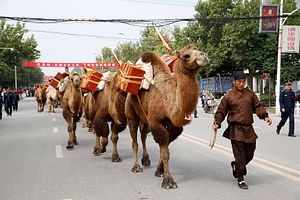Three years ago, during a visit to Kazakhstan, Chinese President Xi Jinping unveiled what has come to be his signature foreign policy initiative: the Silk Road Economic Belt. Speaking on September 7, 2013 at Nazarbayev University in Astana, Xi urged China and Kazakhstan to “work together to build the Silk Road Economic Belt.” In the speech, Xi described a vague vision for renewing the ancient Silk Road in order to “forge closer economic ties, deepen cooperation, and expand development space in the Eurasian region.”
Since then, the policy has been both fleshed out and elevated. So much so that some reference to the Silk Road Economic Belt and its overseas counterpart, the Maritime Silk Road, makes its way into statements at every meeting between a Chinese official and his or her Asian or European counterparts. According to remarks from Xi Jinping at a symposium on the Belt and Road held in Beijing on August 17 of this year, over 100 countries and international organizations have agreed to participate. Of those, 34 have signed formal inter-governmental cooperation agreements with China.
Those agreements have come with a raft of Chinese money. Chinese media report investments of nearly $15 billion by Chinese companies in 49 countries along the Belt and Road route in 2015. Much more is on the horizon in the form of planned projects.

































